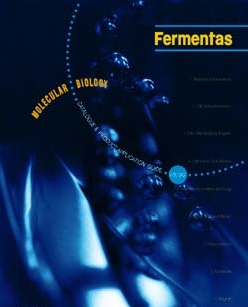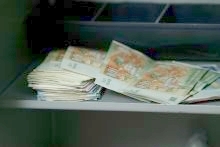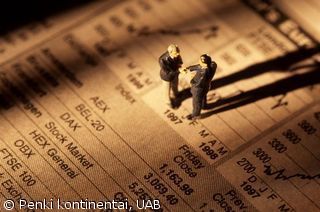It is the only source that can provide a chance for economic breakthrough
Published:
21 March 2005 y., Monday
Money from Russia’s Stabilisation Fund is expected to be invested abroad in dollar-nominated securities, with minimum investment risks and minimum profitability at 2-4%. These funds have until now been kept in Central Bank accounts. This means that a great deal of money will soon appear on the financial markets. On February 1, 2005, the Fund totaled 647.2 billion roubles ($23.1 billion), which mostly came from taxes on oil sales with prices exceeding $20 per barrel and export duties from oil companies.
The crucial question is how this money should be used. Money can only be taken out of the Fund when it has more than 500 billion roubles. Therefore, more than a fifth of its resources can already be used. This is a key issue for Russia’s economy, as the positive overseas market situation in recent years has been almost exclusively responsible for its growth.
However, experts are not tired of repeating that the potential of the resource-oriented Russian economy has been virtually exhausted. The mechanism whereby "we produce oil, sell it and enjoy the benefits" is becoming increasingly less effective. The country is now at a stage when it must introduce an industrial policy. However, any policy only makes sense when there is money to implement it.
Russia’s stock market and banking system do not provide the necessary financing for the real sector of the economy. Direct foreign investment in Russia remains at a very low level, while foreign investment in general is concentrated on either the import of equipment or foreign borrowings. The country obviously needs sources for further growth. The Stabilisation Fund is virtually the only potential source today and a genuine war is being waged for its funds.
Šaltinis:
financialexpress.com
Copying, publishing, announcing any information from the News.lt portal without written permission of News.lt editorial office is prohibited.
The most popular articles
 Elinor Ostrom -- an American professor who developed ways to manage common property - is the first woman to win the Nobel prize for economics.
more »
Elinor Ostrom -- an American professor who developed ways to manage common property - is the first woman to win the Nobel prize for economics.
more »
 The European Commission has today approved an application from the Netherlands under the Globalisation Adjustment Fund (EGF) for € 386 114 to help 435 workers made redundant by Heijmans N.V., a Dutch construction company, back into jobs.
more »
The European Commission has today approved an application from the Netherlands under the Globalisation Adjustment Fund (EGF) for € 386 114 to help 435 workers made redundant by Heijmans N.V., a Dutch construction company, back into jobs.
more »
 Seeking to strengthen and further expand product sales in the Asian region, the Lithuanian biotechnology company Fermentas established its subsidiary in China.
more »
Seeking to strengthen and further expand product sales in the Asian region, the Lithuanian biotechnology company Fermentas established its subsidiary in China.
more »
 Statistics Lithuania reports that, based on non-final data obtained from customs declarations and Intrastat reporting data, exports in January–August 2009 totalled LTL 25.6 billion, while imports – LTL 28.9 billion.
more »
Statistics Lithuania reports that, based on non-final data obtained from customs declarations and Intrastat reporting data, exports in January–August 2009 totalled LTL 25.6 billion, while imports – LTL 28.9 billion.
more »
 On 6 October 2009 AB Bank SNORAS Board decided to reform the Private Limited Company UAB “SNORO investicijų valdymas” into the Public Limited Company AB „Finasta Holding“, which will control recently obtained „Finasta“ group companies and other Bank SNORAS group companies, engaging in investment management.
more »
On 6 October 2009 AB Bank SNORAS Board decided to reform the Private Limited Company UAB “SNORO investicijų valdymas” into the Public Limited Company AB „Finasta Holding“, which will control recently obtained „Finasta“ group companies and other Bank SNORAS group companies, engaging in investment management.
more »
 If your airline goes bankrupt and leaves you stranded what are your legal rights? Members of the Parliament's Transport Committee want grounded passengers to have access to a special compensation fund.
more »
If your airline goes bankrupt and leaves you stranded what are your legal rights? Members of the Parliament's Transport Committee want grounded passengers to have access to a special compensation fund.
more »
 Euro report says currency provided protection from interest and exchange rate turbulence.
more »
Euro report says currency provided protection from interest and exchange rate turbulence.
more »
 Statistics Lithuania informs that in September 2009, against August, prices for total industrial production sold dropped by 1.6 per cent.
more »
Statistics Lithuania informs that in September 2009, against August, prices for total industrial production sold dropped by 1.6 per cent.
more »
 The European Bank for Development and Reconstruction (EBRD), the European Investment Bank (EIB) Group, and the World Bank Group* on Monday warned against complacency in the face of significant challenges that stand in the way of economic recovery in Central and Eastern Europe.
more »
The European Bank for Development and Reconstruction (EBRD), the European Investment Bank (EIB) Group, and the World Bank Group* on Monday warned against complacency in the face of significant challenges that stand in the way of economic recovery in Central and Eastern Europe.
more »
 The leader of the country’s investment products’ market – AB DnB NORD Bankas – intends to issue up to EUR 300 million nominal value corporate notes in local and foreign markets over the next 12 months.
more »
The leader of the country’s investment products’ market – AB DnB NORD Bankas – intends to issue up to EUR 300 million nominal value corporate notes in local and foreign markets over the next 12 months.
more »